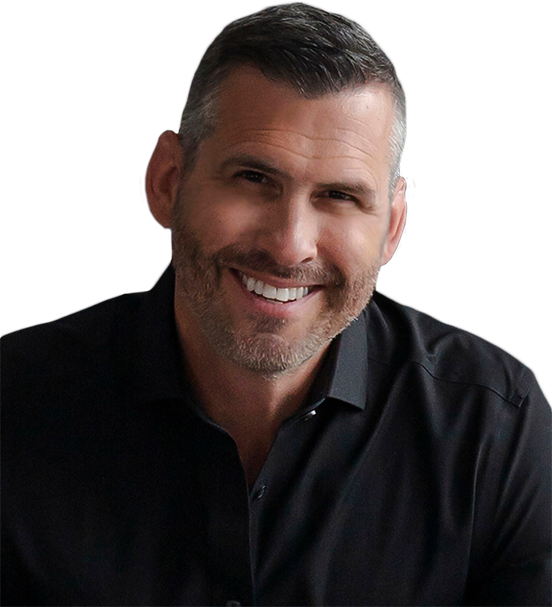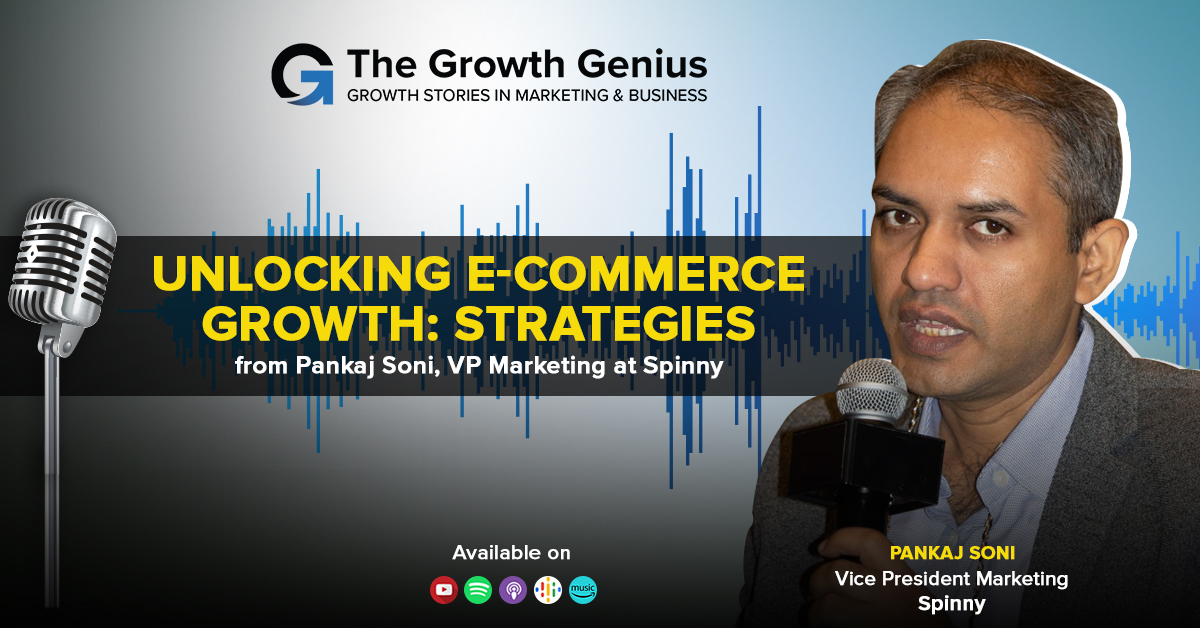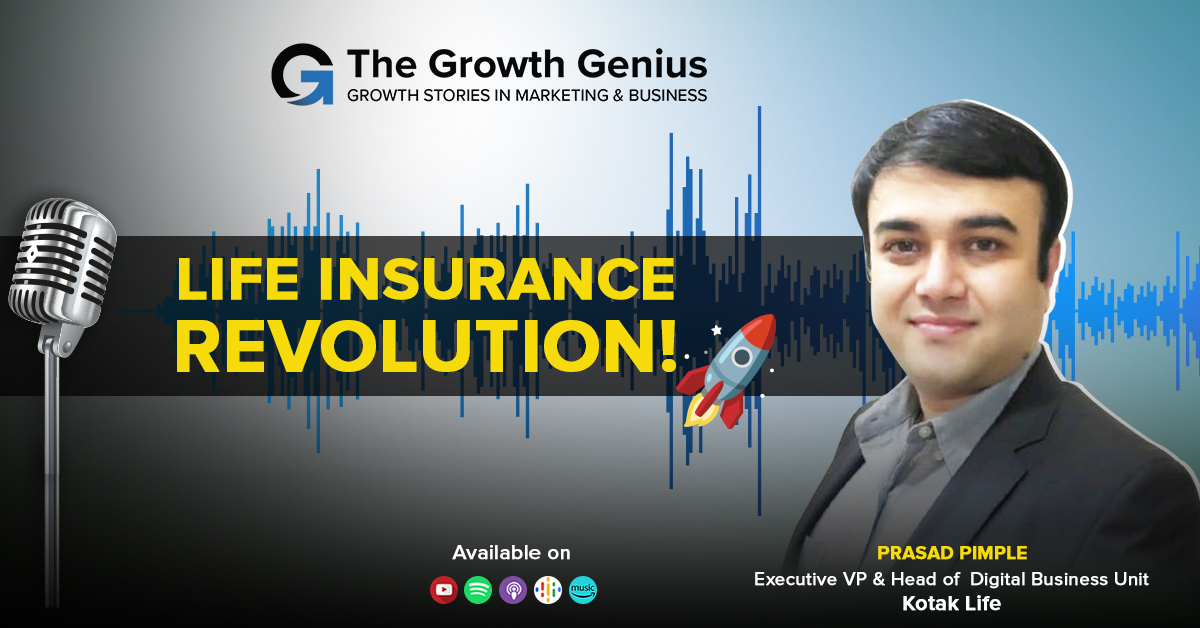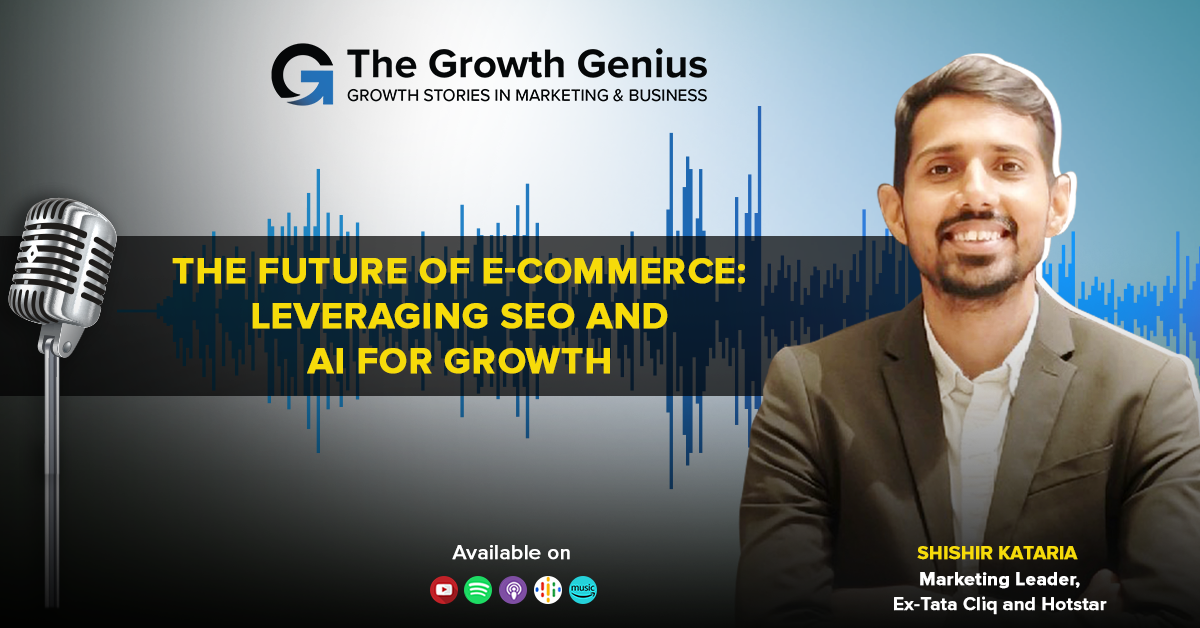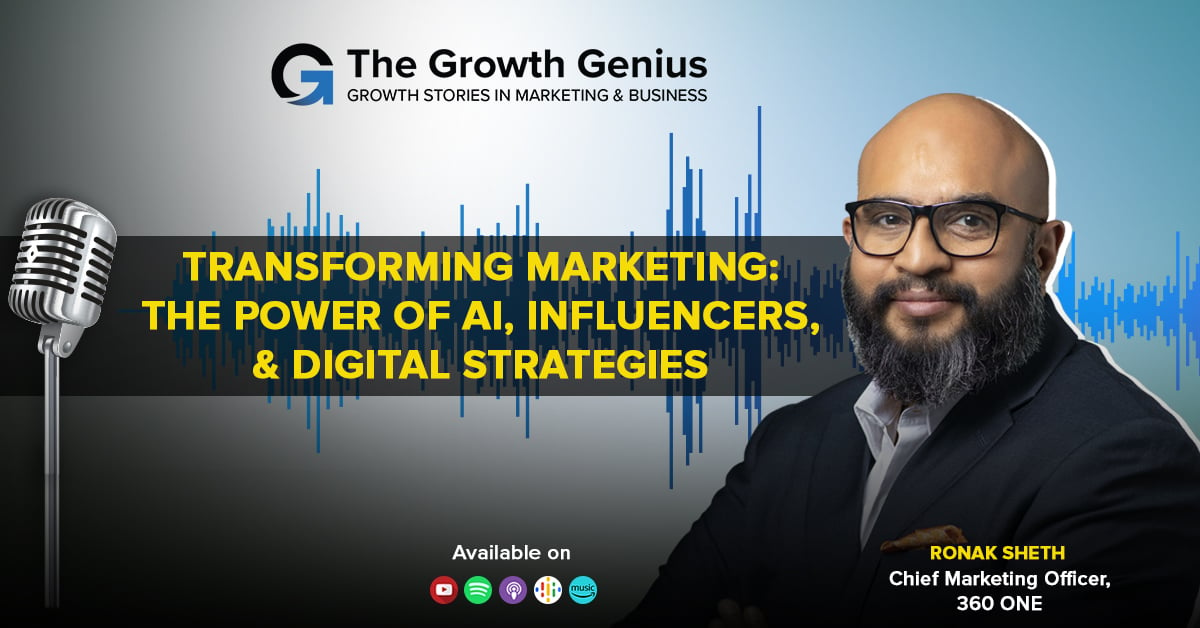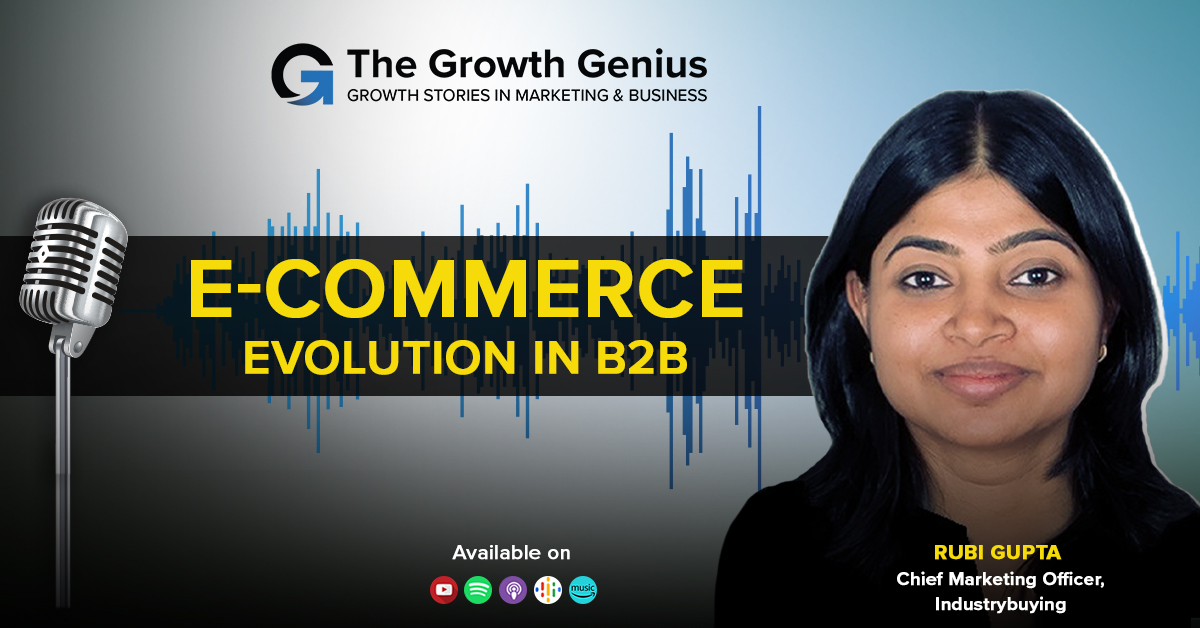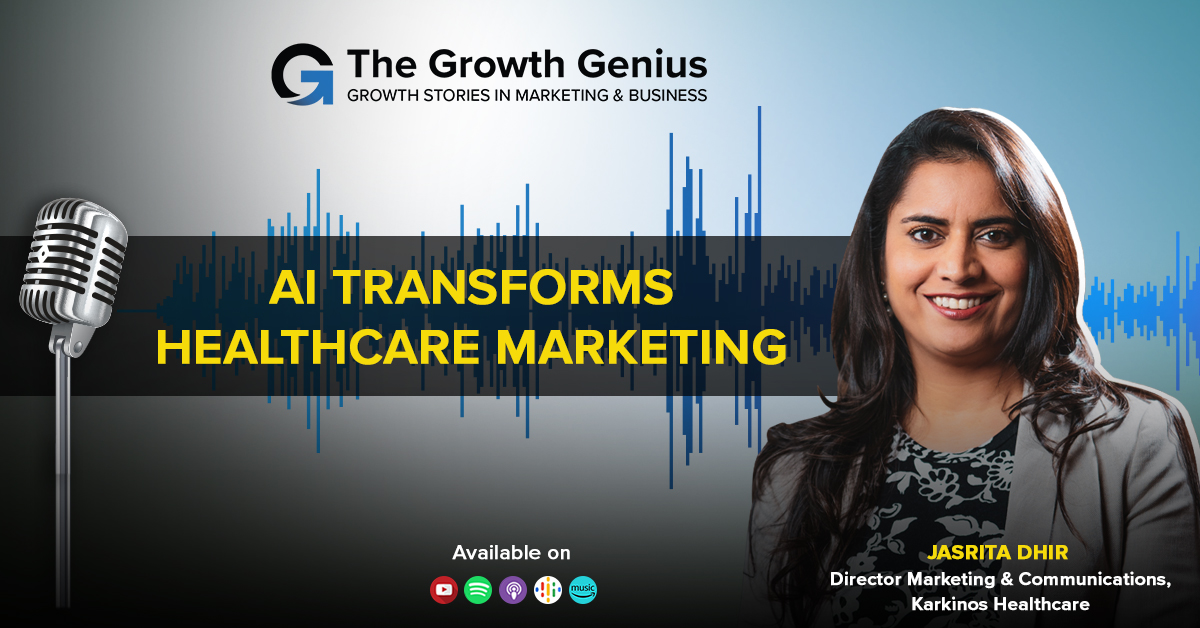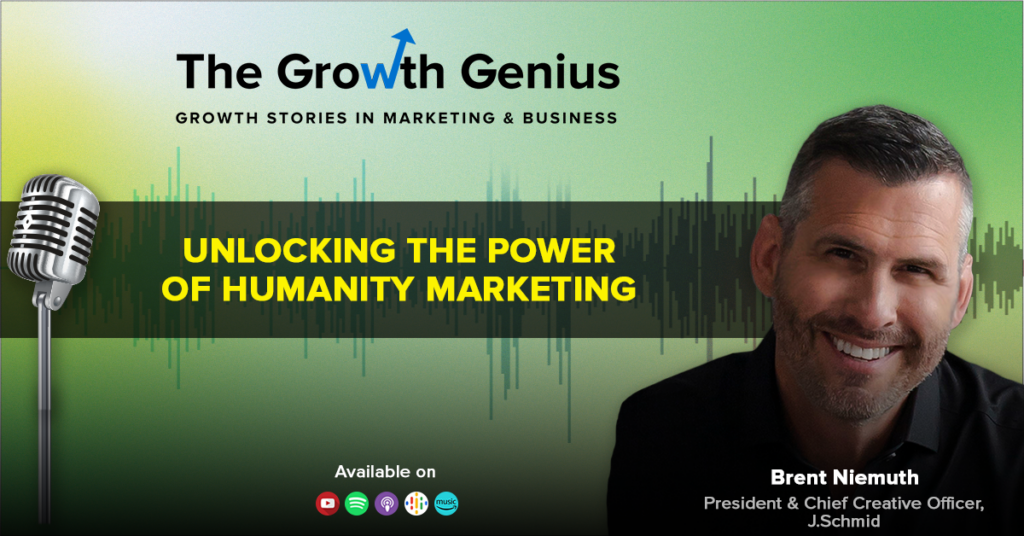|
Getting your Trinity Audio player ready...
|
Listen on your Podcast app
Summary
In this podcast episode, JSchmid, a marketing strategy expert, shares valuable insights on how to develop an effective marketing strategy. He emphasizes the importance of understanding the target audience and their needs, as well as conducting thorough market research. JSchmid also highlights the significance of creating a unique value proposition and positioning it effectively in the market. He discusses the role of data analysis in refining marketing strategies and emphasizes the need for continuous testing and optimization. JSchmid provides practical tips for building a successful marketing strategy, such as leveraging customer feedback and staying updated with industry trends. This podcast episode is a valuable resource for marketers looking to enhance their marketing strategies and drive business growth.
Key Take Aways
- Understand the target audience: The blog emphasizes the importance of understanding the target audience’s needs, preferences, and behavior to create effective marketing strategies.
- Develop a comprehensive marketing plan: It highlights the significance of creating a well-defined marketing plan that aligns with the business goals and objectives.
- Utilize data-driven insights: The blog emphasizes the use of data-driven insights to make informed decisions and optimize marketing campaigns for better results.
- Focus on user experience: It emphasizes the need to prioritize user experience by creating user-friendly websites, optimizing page load speed, and ensuring mobile responsiveness.
- Leverage SEO strategies: The blog highlights the importance of implementing effective SEO strategies to improve organic search visibility and drive more traffic to the website.
- Utilize content marketing: It emphasizes the significance of creating high-quality and relevant content to engage the target audience and establish thought leadership.
- Embrace social media marketing: The blog highlights the power of social media platforms in reaching and engaging with the target audience and suggests leveraging them for brand promotion.
- Monitor and analyze performance: It emphasizes the need to regularly monitor and analyze marketing performance using tools like Google Analytics to identify areas of improvement and optimize strategies accordingly.
Read Transcript
Brent Niemuth:- Ninety-five percent of all the decisions we make when we’re ready to make a purchase are driven by emotion, not logic. I think far too many brands act like faceless companies with no personality, no empathy, and no reason to be loyal to them. How they differentiate themselves from the competition is the first thing consumers look for when comparing brands and considering a purchase. I think the most important thing for brands to focus on is how to be completely different from their competitors.
Shelly Singh:- Hello and welcome to “The Growth Genius” series brought to you by DMAAsia and Infidigit. My name is Shelley, and I’m the country director for the Americas at Infidigit. I’m also the founder and director of DMAAsia. In this Growth Genius series, the world’s best marketers and business leaders are interviewed about the brands they have worked on, their successful campaign strategies, how they got noticed by their customers, and how they delivered better customer experiences to drive growth. Today we have Brent Niemuth, President and Chief Creative Officer at J. Schmid in Kansas City, a leading creative and branding agency specializing in direct-to-consumer marketing. Brent has gained a national reputation for challenging industry norms and is known for his strong belief that brands need to be more human. He’s an award-winning designer and highly sought-after speaker on the topics of creativity, design, and branding and has been helping build brands such as Disney, House of Blues, Reebok, Jockey, Microsoft, and multiple Las Vegas resorts for over 35 years. A very warm welcome, Brent.
Brent: Thank Shelly, g. It’s so good to be here, and thanks for having me.
Shelly:- Great, Tell us about your background and how you got started in advertising and direct marketing.
Brent:- Sure, my degree is in graphic design, so I went to school to study graphic design and got my first job out of school in a design agency. From there, I went to a bigger advertising agency as a creative director and was responsible for a fairly large creative team here in Kansas City. It was there that I caught the bug for branding and got to peek behind the curtain of a lot of major brands like Disney, House of Blues, and Westin hotels and see how they built brands. It was from there that I moved to J. Schmid, which is a direct marketing agency. I was not a direct marketer previously, but we saw an opportunity to combine the storytelling aspect of branding, which was my background, with direct marketing, which is very data-driven. So, we know what happens if you combine those two: the storytelling of branding and the data-driven science of direct marketing.
Shelly:- That’s pretty amazing! You talk a lot about the concept that you call Humanity marketing. What is Humanity marketing, and how does a brand use it to improve its overall performance?
Brent:- Sure! Humanity marketing is essentially the notion that brands need to be more human. I think far too many brands act like a faceless company with no personality, no empathy, and no reason to be loyal to them as they have no emotional connection. So, it begs the question: why are some brands loved and others ignored? If you think about it, you’ll realize that brands are based on relationships, and relationships are based on feelings—that is, how we feel about someone or something. But most brands focus only on the transactional relationship with their customers. Unfortunately, they just sell them things, but nobody likes to be sold to. So you have to ask the question: what’s the secret, then, to these brands that are loved and not ignored somehow? I think that those brands act more human, and their secret weapon is probably empathy. They understand that they’re trying to connect with real people in real ways, and they just want to be a part of our lives. So, they treat us like human beings, not data, demographics, or a name on a mailing list, which a lot of us Direct Marketers are guilty of. We tend to look at the numbers and forget that we’re selling to real people, so the best way to do that for these brands is to create this relationship, this connection, and I think they just need to act more human, like a real person would, and not act like a faceless company.
Shelly:- Yeah, so is this concept based on any data, or are there any studies that support it?
Brent:- Yes, for sure. In fact, there have been numerous studies in neuroscience, and a lot of this belief comes from studies that are rooted in Neuroscience. There are a lot of things that have been proven. And one of those studies—actually, several studies—has proven that nearly 95% of all buying decisions that all of us consumers make are driven by emotion. Ninety-five percent of all the decisions that we make when we’re ready to make a purchase are driven by emotion, not logic. I think a lot of us assume that it’s the other way around, that logic drives buying habits, and that’s just not true. Something happens deep in our subconscious that draws us to certain products or brands. It’s a feeling of desire that we don’t even realize is happening because it’s buried deep in our subconscious. We just want something, and we can’t explain why. It’s pure emotion, and then we use logic after the fact to justify those feelings. The logic makes us feel better about the purchase decision. So if 95% of those buying decisions are driven by emotion—that is, how we feel about something—doesn’t it make sense for brands to appeal to consumers on an emotional level? They should get them to feel something, not just go straight to trying to get them to buy something. Yet most brands, I would argue, still spend the majority of their marketing efforts using logic alone. They sell a product based on features and benefits, saying, Here’s what the thing is, here’s what it does, and here’s what it costs. But the fact is that we’re not buying based on those things; we’re buying based on how we feel about something. So those brands that have figured out how to connect to them in a human way that is connected emotionally are the ones that are winning.
Shelly:- Yeah, that’s so true. In fact, I was reading one retail study that found that people with an emotional connection to a brand have a 300% higher customer lifetime value, will remain loyal for about 50% longer, and will recommend that brand at a higher rate. This is amazing, so do you have any examples of brands that behave more humanly or campaigns that have successfully used a more human approach?
Brent:- Sure, when I think of brands that feel more human to me at least, it’s usually based on the personality of the brand, the tone of voice of the brand, how they act, how they speak, or how they behave. So some of the brands that float to the top are for men—one is Duluth Trading Company with their playful and very witty personalities. A lot of their personality and their marketing are cartiven. Literally, cartoons can be seen on their website, in their TV ads, and in their television marketing. It’s fun and very playful, and that personality is unique to Duluth. Another one is Faherty; if you’ve heard of this brand, you’ll love it, and if you’re not familiar with it, check it out. It’s a high-end casual apparel brand with this very authentic and approachable family vibe, and I say family because it was founded by twin brothers Mike and Alex Faherty, hence the name of the company.
Shelly:- I think I’ve seen one of their campaigns.
Yeah, it’s wonderful, and because there’s a real family behind this brand, twin brothel wives and wives, their wives, and theire all ver are involved in the business. They’re always at the forefront of all the marketing campaigns; they’re real people; they don’t hide behind the brand; and they’re not some faceless CEO that you never see. So you get to know these guys and they taguys,ou on their adventures with them. You feel like you know them personally, so you have a stronger connection to the brand. A third one is Progressive Insurance. Insurance is a difficult industry to set yourself apart in. It’s a commodity item that we all know we need,but what’s the difference between insurance companies? Progressive sets themselves apart again with their personality. They feel huma;, they’re funn;, they’reoffbeat; and they have personality. They run kooky ad campaigns with flow, and they’re a very likable team There’s a Progressive campaign out, right now. Speaking of campaigns, that one’s been running for a while but I think it’s brilliant. It’s a perfect example of a brand communicating in a purely human way. It’s the parent’s campaign where Dr Rick, a guy with the mustache, if you’ve seen their TV spots, is on a mission to save you from turning into your parents. I think the line they use at the end of every spot is ‘Progressive can’t save you from becoming your parents but we can save you money when you bundle home and auto with us’. So, it’s purely emotional as they make a connection with their audience. It’s very funny and very humorous about trying to save you from becoming your parents but because they come across in this very human way, it’s relatable, humorous and memorable. In fact I don’t think they even talk much about the insurance and the policies in the commercials. They’re just having a fun conversation so the result of that campaign is that I like Progressive Insurance more after seeing those spots. It’s just all about being relatable.
Shelly:- Great examples! So, are there any examples of campaigns that you have helped create for your clients that utilize this human approach?
Brent:- Yeah, there are quite a few . One that comes to mind because it’s fairly recent, is one that we created for Grandin Road. Grandin Road is a home furniture interiors brand, slightly higher-end home furnishings and the campaign is called love your home more. It was born during the pandemic. The campaign and the concept for it came out of the pandemic. Since all of us were spending far more time at home, many still are, therefore people wanted to improve their spaces, the environment in their houses so they started to view their homes differently. They started to use them in new ways, home offices for instance. You saw those start to spring up so it was consumer insights really that showed us that people’s feelings about their homes were very personal, very emotional and had become heightened during the pandemic. So, they wanted to love their home and the place where they spent most of their time and were willing to spend money to do so. The campaign for Grandin Road said ‘love your home more’ and the message spoke directly to those feelings. Here again, the logic part of it all, the features and benefits of the furniture itself came second. There were logical reasons for buying but first we spoke directly to how people felt about their home. It was pure emotion and it worked you know, sales have increased and the average order has increased. New people are coming to the brand and we’ve seen in other campaigns, that we’ve created for clients that deliver on that emotion, that sales actually increase.
Shelly:- Great yes I can see how this approach can strengthen a consumer’s connection with the brand. I saw the creatives of this campaign on your website and they’re very compelling.They’re beautiful as well. So, looking into the future, what do you think are the top three local and global trends to watch for.
Brent:- Good question, It’s a lot of them. You want three! I would say the first is that consumers will continue to demand brand transparency. Companies can no longer hide behind a falsely created image. It used to be pretty common years ago where a brand’s image was the only connection that you had and you could get away with a lot. You can’t pretend to be something you’re not, anymore. Consumers are gravitating toward brands that are transparent, those that feel real, authentic and st honestand if you’re not consumers will see right through it. So, it’s just best to be yourself, be more human. t Second is that social media will continue, nothing new but it will continue to play a vital role in how brands interact with their customers. But this goes beyond just trying to sell folks another selling channel under the notion that people don’t always like to be sold to, especially on social media. So, we need to figure out a way to add value to people’s lives, so brand transparency one, social media two and then the third is that people will always want to be entertained. I believe this and it’s baked into our DNA that as human beings we wish to be entertained. Give me something interesting to watch, to look at, maybe make it humorous or funny and this is true probably now more than ever. So video needs to play a much bigger part in how brands communicate with their audience and ways to get their message out. As marketers we’re in the business of selling yes but we’re also in the business of entertaining. I would put a footnote on that too, that this goes for B2B Brands. I think a lot of B2B Brands assume that they don’t have the right to be playful and entertaining and therefore don’t use video much. But I think that’s false.
Shelly:- Great, that’s very interesting! So, looking at these consumer trends, what should marketers plan to do in the next three to five years to remain relevant?
Brent:- Another good question. I think the most important thing for Brands to focus on is how to be completely different from their competitors. I don’t think enough brands focus on how to differentiate themselves from the competition. It’s the first thing consumers look for when comparing brands and considering a purchase If I were to offer you up two or three or four things to choose from, the first thing our brain will do is compare what’s different and if I can’t see a difference, chances are that I will either leave, walk away or ignore you or base that decision purely on price. You know the problem is that a lot of brands just simply aren’t that different from their competitors, they don’t stand out, they’re not special. So, the first thing is to be clearly different, the second is that if your brand hasn’t figured out its stance on sustainability then you’re already behind the curve. More and more consumers say that it’s very important to them that your products and your manufacturing processes are sustainable. Are you friendly to the environment? It’s important, so if you’re not that’s a problem. If you are on top of this sustainability business but you’re not communicating it, that’s a problem too. You’ve got to tell folks and then lastly, which is the third,a mobile phone that will continue to become the way people interact and buy from brands. This is nothing new but I think you’ll see an increase in the mobile experience so we need to ask ourselves, is our mobile experience up to par?Is it easy to navigate? Is the content up there good? as brands in the future will continue to exist in a mobile world.
Shelly:- Well that’s great insight, so just to sum up – you spoke about brands needing to be different from their competitors. I think Humanity marketing can play a big role here because not only can it reveal the personality of the business but also its employees. There can be memorable experiences created by brands that can profoundly affect customer perception and loyalty. Secondly, you spoke about sustainability which is a big thing now because after the post Covid era, sustainable brands are the ones that everybody wants to go for and thirdly you said mobile experience. I think there are still many brands and companies which are not leveraging the mobile experience. So, great insights there and this brings us to our last segment – what passions do you follow outside your work and to unwind or get inspired?
Brent:- Oh wow great question! Where do I spend my time outside work and where do I get inspired? I’m a lover of the outdoors. I love to be outside. Any chance that I can get, I love to be out in nature, preferably in the mountains, hiking. I don’t live in the mountains but I can drive there. I love mountain biking and playing golf. I’m a big golf guy so just being outside I think is the best way to clear your head, to think and to find inspiration. I’m also a huge sports fan. I love watching a good game, you name any sport but I think in sports and in sports teams there are a lot of parallels to branding. They’re a great example of how to create a brand persona and build fan loyalty, so I love sports.
Shelly:- Thanks for sharing. How can our viewers find you and connect with you?
Brent:- Email is probably the best way, they can reach me at [email protected]
Shelly:- Great thank you so much Brent for your time today. You have given us great insights on Humanity marketing which is going to play a significant role to drive growth.
Brent:- Thank you Shelly, much appreciated.
Shelly:- To all our viewers thanks for listening. Please subscribe to this channel if you enjoyed this episode. If you’d like to help and support this podcast please share it with your friends, post about it on social media and leave a comment and review. I’ll see you next time in a new episode with a new speaker. Until then peace.

Popular Searches
How useful was this post?
0 / 5. 0









